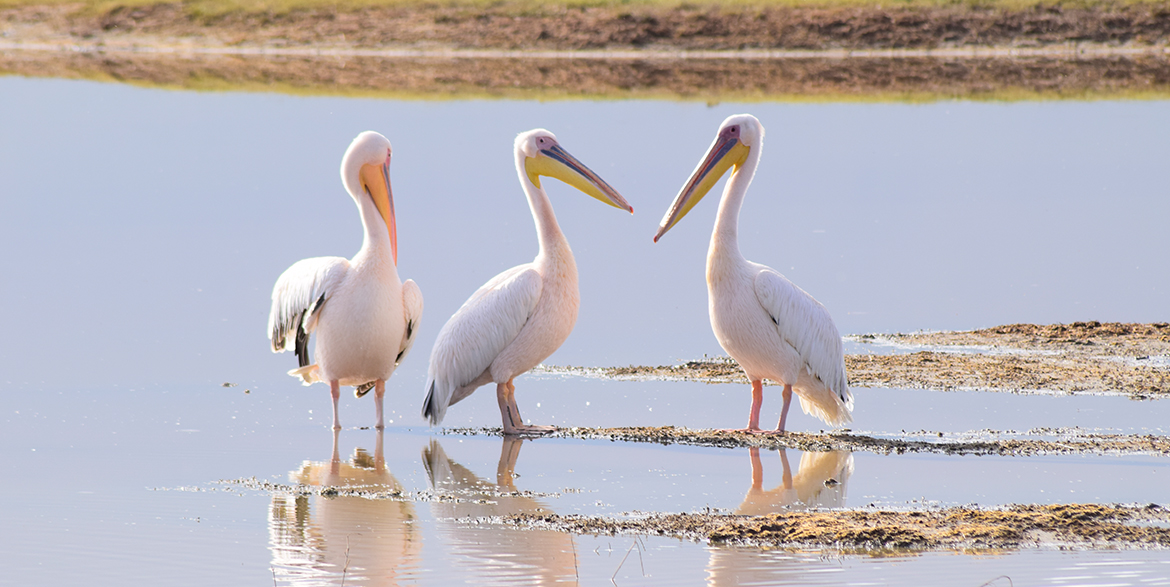Tanzania bird watching boasts a large number of unusual and endemic bird species, and a list which nearly exceeds that of neighboring Kenya and almost equals Uganda. The country is truly a bird watcher's paradise: Bird Watching in Tanzania is diverse and spectacular, over 1000 bird species has been recorded from water birds, forest birds, savannah birds to sea-birds. Below are a few of the major bird species found in country. If you are an ornithologist, you will also enjoy watching plentiful water birds including the African skimmer, kingfishers, goliath heron, and the rarely seen Pell’s fishing owl.
Bee-eater: This specie is very colorful and nice to watch, usually perched on fences and trees. They feed on bees and wasps. There are about 4 types of bee-eaters commonly seen in Tanzania, they differentiate themselves by colors and size. commonly found in Lake Manyara, Highland forests, Usambara, Coastal areas and Southern Tanzania.
Crowned-Crane: a graceful, long legged bird, it looks like a stork and heron. Cranes are grassland dwelling birds. They are widely distributed in swamps, lake shores and grassland, commonly seen in pairs, small parties and flocks. Ngorongoro Crater harbour so many Carnes.

Fish Eagles are usually seen on the trees near the water bodies. Skilled at fish catching. Excellent place to see them: Rubondo Island National Park, Ruaha National Park near river banks has spectacular view of these birds. Northern Tanzania National parks reserve: Serengeti, Ngorongoro Crater, Tarangire and Lake Manyara. Other birds: Fischer's lovebird, grey-rumped spur fowl and babbler-like rufous-tailed weaver.
Marabou stork, a scavenger normally seen with other vultures sharing a carcass. It has huge beak and the deep pink pouch swinging on the neck. Commonly see in almost all national parks and game reserves around the country.
